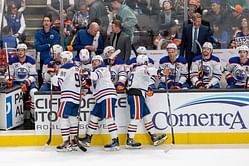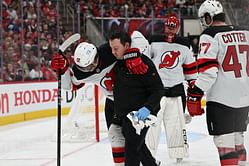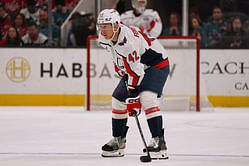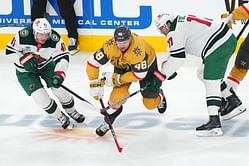
The NHL Draft Lottery is a system used to determine the order of selection for the first picks in the National Hockey League (NHL) Draft. The Lottery system gives several teams that did not make it to the playoff a chance of picking the first overall, giving them a super valuable chance to choose early picks and rejuvenate the team's rosters.
This system ensures fair competition in the league, preventing teams from intentionally losing games to secure the top pick. For the 2024 season, the San Jose Sharks were the winners of the NHL Lottery and will be having the first pick at the 2024 NHL Draft.
How does the NHL Draft lottery work?
The NHL Lottery consists of two draws to decide the teams that will be selected first and second overall.
First Draw: Determines the team that will select the first overall pick
Second Draw: Determines the team that will select the second overall pick.
Each non-playoff team is assigned odds based on their regular-season performance, with the team having the fewest points given the highest odds of winning the lottery. The odds decrease as the team's regular-season performance improves.
A team can move up a maximum of 10 spots in the draft order as a result of winning a lottery draw.
Therefore, only the top 11 teams in terms of draft lottery odds are eligible to win the first overall pick.
Teams can move down no more than three spots in the draft order as a result of the lottery.
After the lottery winners are placed, the remaining non-playoff teams are given the slot in order of their regular-season points, from lowest to highest. If there are 16 non-playoff teams, the team with the lowest regular-season record might have an 18.5% chance of winning the first draw, while the non-playoff team with the best record might have a 1.0% chance. If the team with the worst record does not win any of the draws, they could end up selecting as low as fourth overall.
NHL Draft Lottery Rules
The NHL announced some changes in the draft lottery system in 2022, reducing the number of lottery draws from three to two (affecting only the first and second overall picks). They also reduced the number of spots a team can move up to 10. Another major rule that is worth noting of a team cannot win the lottery more than twice in a five-year period. These rules were made to promote fairness and competitive balance in the league.
When did the NHL start the draft lottery?
The National Hockey League (NHL) began the draft lottery system in 1995 to determine the order of selection for the teams that did not qualify for the playoffs. Aki Berg of the Los Angeles Kings was the first instance where a team won the lottery and got rights to the first overall pick in the Draft. Since then, 42 more players have been selected in the same way.
What teams are eligible for the NHL draft lottery?
The 16 teams that did not make the playoffs enter the NHL Draft Lottery with the lottery deciding the order of the draft selections. This helps in giving all non-playoff teams a fair shot at improving their draft position. The sixteen eligible teams are now allocated their numbers are as follows:
San Jose Sharks
Chicago Blackhawks
Anaheim Ducks
Columbus Blue Jackets
Montreal Canadiens
Utah Hockey Club
Ottawa Senators
Seattle Kraken
Calgary Flames
New Jersey Devils
Buffalo Sabres
Philadelphia Flyers
Minnesota Wild
Pittsburgh Penguins
Detroit Red Wings
St. Louis Blues
FAQ's On NHL Draft Lottery Format
A. Each non-playoff team is assigned odds based on their regular-season performance, with the team having the fewest points given the highest odds of winning the lottery.
A. The NHL Draft Lottery is a system used to determine the order of selection for the first picks in the NHL Draft.
A. The San Jose Sharks won the NHL Lottery and will be getting the first pick of the NHL draft 2024.
A. There are a total seven draft picks that a team has. This means they have one pick each throughout all seven rounds.
A. There were only two draws: first and second. They also reduced the number of spots a team can move up to 10. Another rule change saw them add a rule where a a team cannot win the lottery more than twice in a five-year period.









